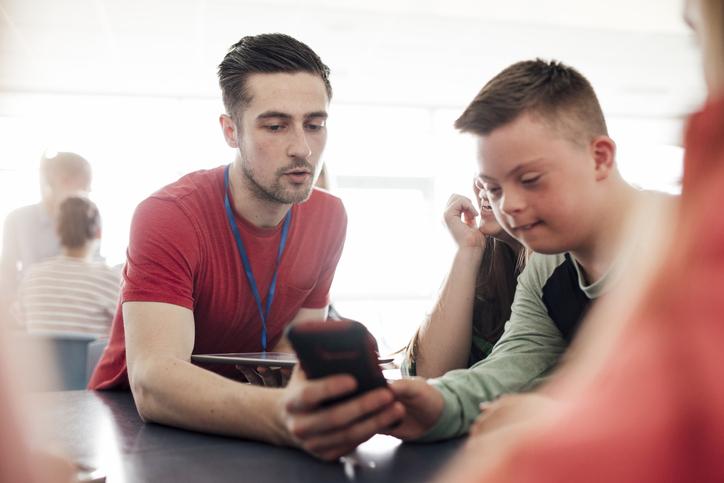Working with different cohorts
Working with NDIS participants from different groups is one way to deepen your understanding and experience. The list below provides some examples of specialised work that is available in the sector:
- Identity support: Working with people who identify as Aboriginal and Torres Strait Islanders, people from culturally and linguistically diverse backgrounds or LGBTIQA+ people
- Early childhood support: working with families, health, allied health and education professionals to support children who are NDIS participants
- Working with people who are experiencing other challenges such as risk of homelessness, domestic violence, family discord supporting other family members with disability
Role profile

James is a support worker who focuses specifically on working with children and teenagers
Can you describe what you do in a few sentences?
I help kids with disabilities do things that everyone else wouldn’t really have to think about.
What does a regular day look like?
I usually have a morning and afternoon shift for sessions with kids. I am guided by what they or their parents would like them to do. Before I meet up with them, I’ll check their profile – it includes any assessments, their plans, likes, dislikes, triggers, etc. Then I’ll plan the session around that. For example, if they have goals to improve life skills, we might do some cooking, or we’ll go to the shops and they’ll have money to pay for lunch or afternoon tea. If they don’t like crowded places or if they find being around lots of people is too stressful, we might go to the park and kick a footy. Sometimes it can be respite care too. If their parents need a break, we might go to the trampoline park for the afternoon.
What’s the best part of your role?
Seeing kids grow, improve and get the best out of life. It’s great to build a relationship, particularly with kids who don’t necessarily engage with everyone but you’re able to build a bond and good relationship with.
What are the biggest challenges?
Sometimes kids face tough situations. It can be pretty confronting seeing what they go through.
How did you get into your current role?
I was a builder for a while and went to America for a break and was a camp counsellor. I was working with a variety of kids as a camp counsellor and found I loved working with kids, building a relationship with them and helping them develop. I came back to Australia and applied to be a disability support worker through a friend who’s family members worked in the industry and just loved it.
What skills or experiences did you have that were helpful, and what did you need to learn?
Having the camp experience to help me get experience working with kids in a controlled and safe environment has been really helpful. Being enthusiastic and having that transferable experience of building relationships were two key assets that got me started, and I did a lot of shadow shifts and training with people who were really experienced.
Capabilities
The NDIS Workforce Capability Framework outlines core capabilities for General and Advanced Support Work. The additional capabilities detailed in the Framework relevant to working with specific groups are:
Things to consider
Some of the things you should consider if you want to explore these types of work include:
- Do you have specific experience or interest in working with a particular cohort? For example, this work may overlap with your own lived experience.
- You may find your own assumptions and attitudes are challenged when learning about different values and ways of thinking. This can be especially challenging when doing this work. Is this something you enjoy?
- Some organisations might specialise in supporting people with a particular experience or cultural identity. Others may support participants from many different backgrounds and walks of life. Think about the type and mix of work you would be most interested in and discuss this with organisations when looking for opportunities.
More information and resources
If you want to learn more about different types of specialisations, you may like to review the following resources.
Supporting children
Supporting Aboriginal and Torres Strait Islander participants
- FPDN | First Peoples Disability Network Australia
- AIHW | Disability support for Indigenous Australians - Australian Institute of Health and Welfare
Supporting Culturally and Linguistically Diverse Participants

